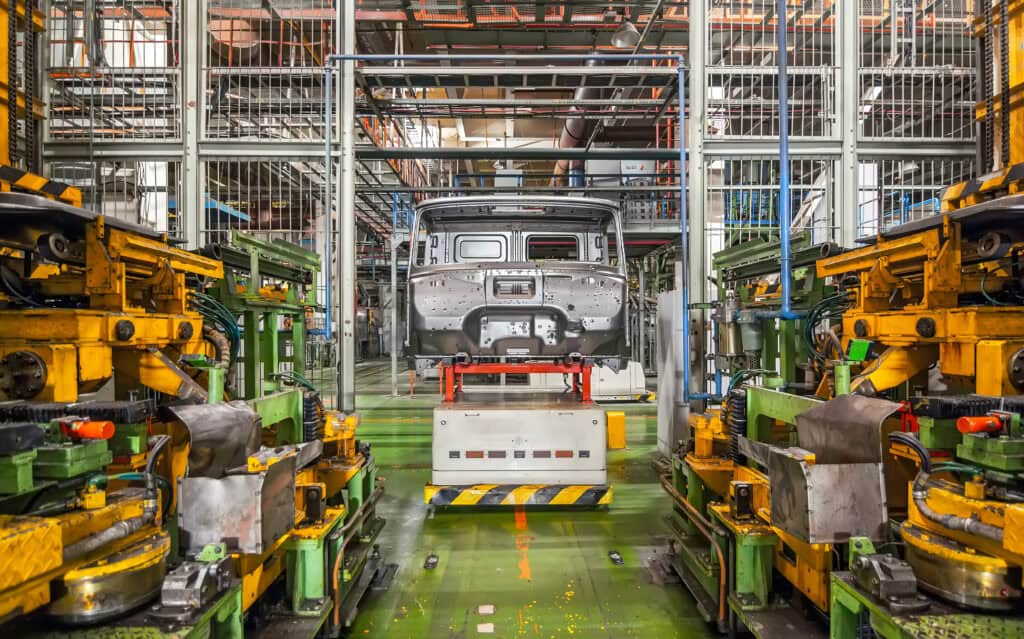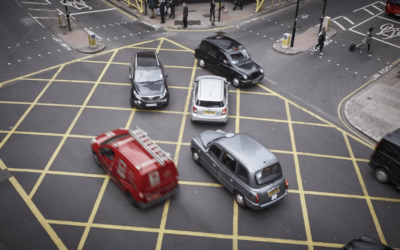Worst January in 12 years for UK car manufacturing – is this a sign of things to come?

Brexit border friction and the current lockdown led to the UK’s worst January for car production in more than a decade.
A “whopping” decline
New figures published by the Society of Motor Manufacturers and Traders (SMMT) reveal that little more than just 86,000 cars were built in the first month of this year. That’s some 32,262 less than in January last year; a whopping 27% fall.
And it’s the 17th month of decline in a row.
But the reasons causing the decreased production are obvious. Global supply chain problems and extended shutdowns of factories across the globe have been unavoidable during the pandemic. And pre-Brexit confusion and post-agreement teething problems haven’t exactly helped.
Somewhat surprisingly, exports accounted for more than 80% of all vehicles manufactured in the UK in January. As you can imagine though, shipments to the major EU market were still lower than normal.
Pressure mounting on Chancellor ahead of 2021 Budget
Estimates put the cost of the reduction in manufacturing at around £11bn annually. In the light of these worrying figures, more pressure mounts on the Budget on March 3rd. Industry leaders hope that Chancellor Rishi Sunak will use the opportunity to offer more support to the industry.
SMMT Chief Executive Mike Hawes has already urged Sunak to introduce measures that enhance the UK’s automotive manufacturing competitiveness in light of the latest figures.
He said: “Yet another month of decline for UK car production is a grave concern and [the] Budget is the Chancellor’s opportunity to boost the industry by introducing measures that will support competitiveness, jobs and livelihoods.
“Whilst there have been some very welcome recent announcements, we need to secure our medium to long-term future by creating the conditions that will attract battery gigafactory investment and transform the supply chain.
“Most immediately, however, we must get our Covid-secure car showrooms back open, ideally before 12 April. This will be the fastest way to UK automotive manufacturing recovery.”
Budget measures we hope to see include extension to furlough, amendments to business rates that could incentivise investment in manufacturing, and further support for upskilling and training those employed in the sector.
Is it all bad news for British manufacturing?
There is good news too though.
The UK’s production of battery electric (BEV), plug-in hybrid (PHEV) and hybrid vehicles (HEV) increased by 18.9% this January, compared to January 2020. That amounts to more than 25% of all British manufacturing in January being electric or hybrid vehicles.
As encouraging as these figures may be, more must be done to secure the future of the UK’s production of alternative fuelled vehicles.
Vauxhall’s parent company, Stellantis, is currently in talks with British Government about the Ellesmere Port car factory. Vauxhall employs more than 1,000 people at the site where the petrol Astra is made.
Rumour has it that the manufacturers are asking for financial incentives to produce a fully electric car at the factory. If those talks don’t go well, we could well see the factory closed instead.
Where is the UK’s manufacturing industry headed in your opinion? Is it simply a matter of waiting for Covid to blow over and things to return to normal? Or does more need to be done to encourage further investment in the industry and secure jobs? Drop a comment and share your opinion!










